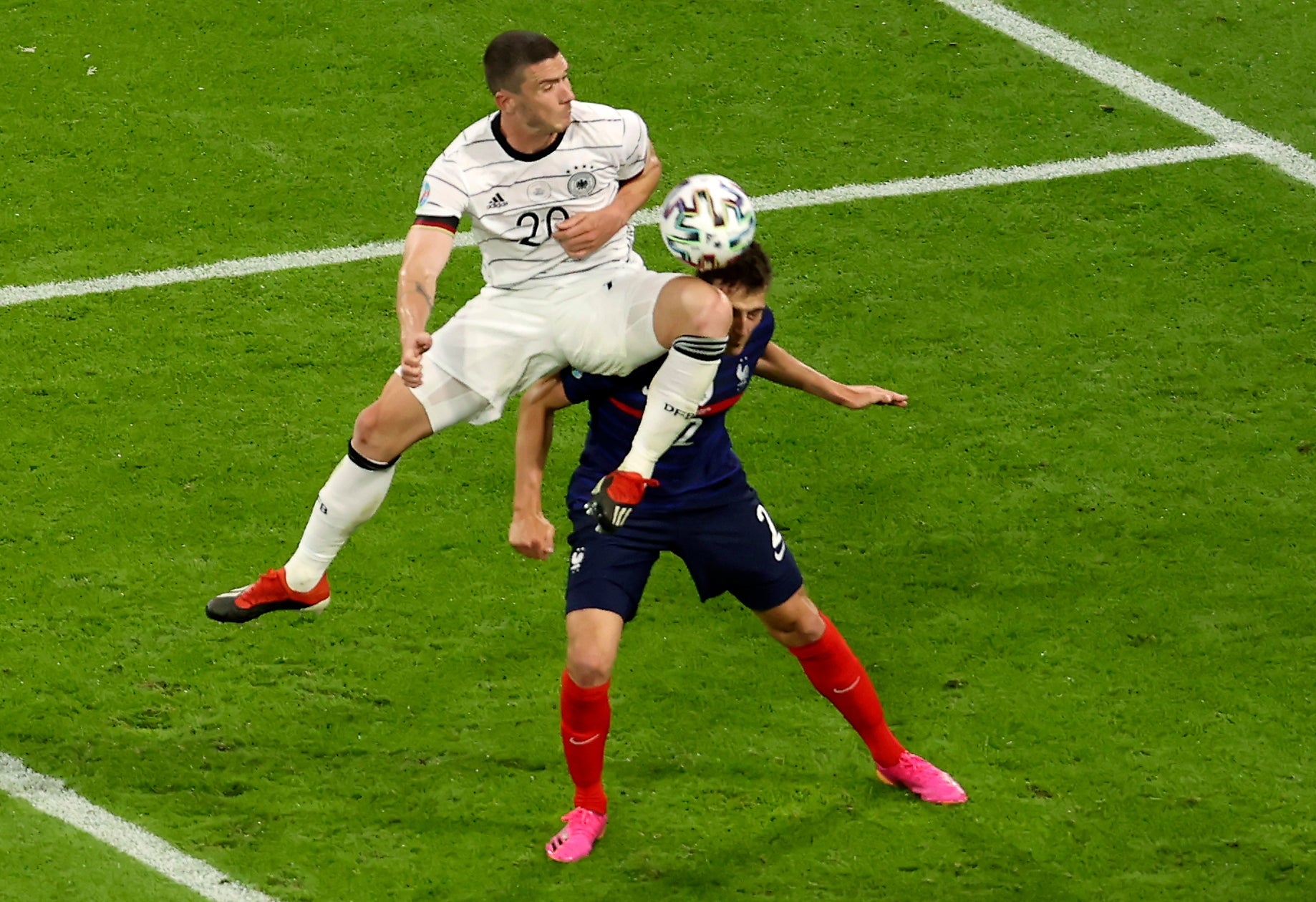Benjamin Pavard: Fifpro demands answers from Uefa over handling of head injury
Pavard said he had been knocked out for “10 or 15 seconds”.

Your support helps us to tell the story
From reproductive rights to climate change to Big Tech, The Independent is on the ground when the story is developing. Whether it's investigating the financials of Elon Musk's pro-Trump PAC or producing our latest documentary, 'The A Word', which shines a light on the American women fighting for reproductive rights, we know how important it is to parse out the facts from the messaging.
At such a critical moment in US history, we need reporters on the ground. Your donation allows us to keep sending journalists to speak to both sides of the story.
The Independent is trusted by Americans across the entire political spectrum. And unlike many other quality news outlets, we choose not to lock Americans out of our reporting and analysis with paywalls. We believe quality journalism should be available to everyone, paid for by those who can afford it.
Your support makes all the difference.World players’ union Fifpro is demanding answers from Uefa over the handling of France full-back Benjamin Pavard’s concussion during the Euro 2020 match against Germany on Tuesday night.
Pavard was involved in a collision with Germany’s Robin Gosens in the second half of the Group F match in Munich.
He said afterwards he had been “a little knocked out for 10 or 15 seconds” and hit the ground after the incident without getting his hands out to cushion his fall.
However, he was not substituted and returned to the action. Fifpro believes the French medical team failed to follow Uefa’s new Concussion Charter in regards to the matter.
“FIFPRO is in touch with @UEFA to find out why the Concussion Charter was not applied and subsequently @BenPavard28 was not removed from the field of play during the #EURO2020 match between France and Germany,” the union posted on Twitter.
“Last week, FIFPRO welcomed the Concussion Charter and highlighted the importance of mandatory education as well as implementation by medical staff in order to protect the players.”
The Charter was announced by Uefa last week, and covered baseline neurological testing of all players and the provision of a video review system to team doctors.
It is understood Uefa is in touch with the French federation regarding the incident, in relation to the application of the Charter.
Peter McCabe, the chief executive of brain injury charity Headway earlier said the handling of the incident had been “sickening to watch”.
“Uefa has to come out and immediately explain how it was allowed to happen and what action it will now take to ensure something similar does not occur in the future,” he said.
Headway said Pavard had received less than three minutes of treatment before coming back into the action.

“This is another example of football authorities failing to protect the short- and long-term health of a player,” McCabe added.
“It was plain for all to see that Pavard was unable to protect himself from the fall. Pavard’s later statement that he lost consciousness confirms the seriousness of the incident.
“We have continuously been told that football’s concussion protocols are fit for purpose and that temporary concussion substitutes are not necessary.
“But here we have yet another example where it is simply not credible to suggest that a concussion could not be ‘suspected’ or a possible consequence of the impact. However, after a brief on-pitch assessment the player was allowed to continue.
“Furthermore, it appeared that the referee was attempting to speed up the medical team and usher them and the player off the pitch, rather than allowing them the time they needed to assess the seriousness of the injury.
“Why is it so hard for football to accept it has got this wrong and follow the example set by other sports by introducing temporary concussion substitutes?”
Fifpro and the English union, the Professional Footballers’ Association, wrote to the game’s law-making body the International Football Association Board in April asking it to extend the scope of its trials to cover temporary concussion substitutes.
The letter warned that the current protocols had “jeopardised players’ health”.
The Premier League and the Football Association trialled permanent concussion substitutes in its competitions from February, while Uefa did so in the European Under-21 Championship.